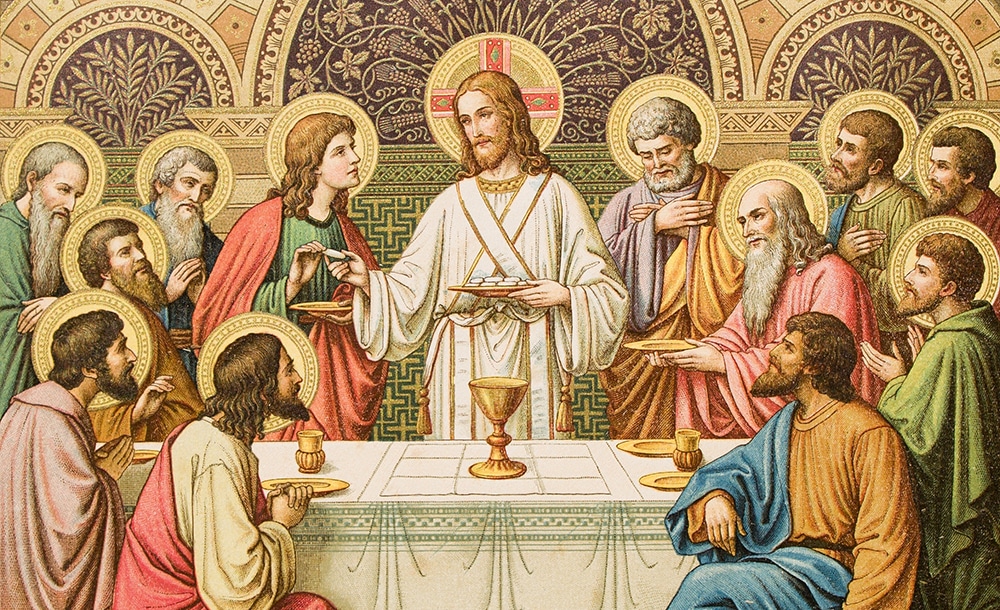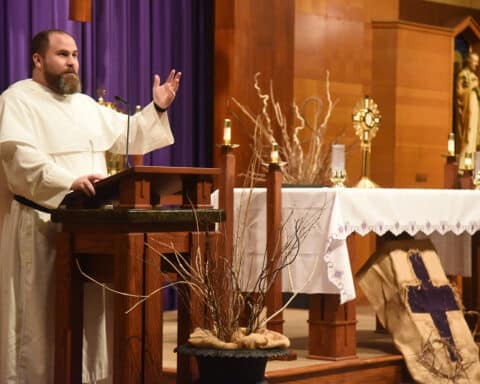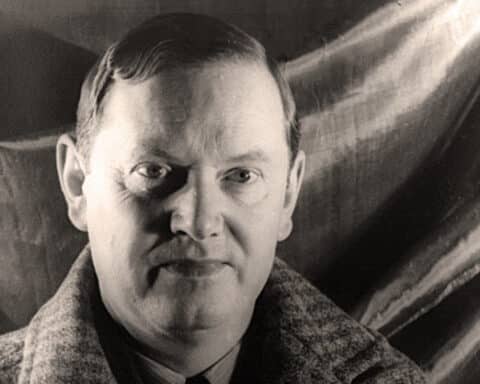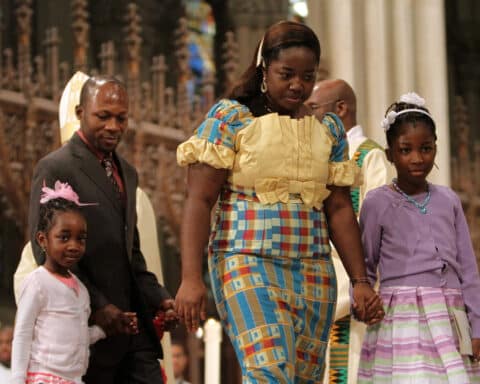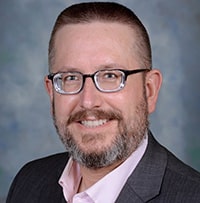
The Jews give Jesus every chance to say that his words are merely metaphorical, but instead, he goes even deeper: “Amen, amen, I say to you, unless you eat the flesh of the Son of Man and drink his blood, you do not have life within you. … For my flesh is true food, and my blood is true drink.”
Everything flows from these words — or rather, from this event — because this is no abstract discourse from which a hundred generations of Christians have, through logical syllogisms, come again and again to a philosophical conclusion about what Christ meant, and how we are supposed to interpret his later action, at the Last Supper, when he broke the bread and blessed the cup. This is, instead, a decisive moment in which those gathered around Jesus hear his words spoken with a brilliance so piercing that some seem able only to close their eyes and shut out the truth. “The words I have spoken to you are spirit and life. But there are some of you who do not believe.”
John tells us plainly what happened next: “As a result of this, many [of] his disciples returned to their former way of life and no longer accompanied him.”
Many, but not all. For the next three verses are a turning point in the ministry of Christ, the moment in which the future of Christianity, the Church and, indeed, the whole world becomes clear. For “Jesus then said to the Twelve, ‘Do you also want to leave?'” And Simon Peter, who would later betray him at the hour of his trial, only to be reunited with him after his resurrection and die a similar death for witnessing to the truth of Christ as the head of his Church, replies, “Master, to whom shall we go? You have the words of eternal life.”
Here in the United States, in 2023, 17% of all baptized Catholics attend Mass every Sunday. Compared with four years ago, 3 out of every 10 who were with us in the pews are no longer there. They did not leave because they became convinced philosophically that the whole Thomistic-Aristotelian explanation of how what appears as bread and wine can be the body and blood of Christ is incorrect, and they won’t be brought back by small-group studies that teach the doctrine of transubstantiation. They left because they no longer felt in the depths of their souls what Simon Peter and the rest of the Twelve — yes, even Judas — experienced that day: not an abstract discourse but the living truth of Jesus Christ.
Eight years before Pope St. Paul VI first uttered the line, “Modern man listens more willingly to witnesses than to teachers, and if he does listen to teachers, it is because they are witnesses,” Walker Percy, in “The Last Gentleman,” illustrated the truth of his words. In the climax of the novel, as a young man who has never been baptized lies dying, a priest is called to his bedside. “Do you accept the truths of religion?” he asks, to which the young man wonders why he should. At first, the priest replies as teacher: “It is true because God himself revealed it as the truth.”
But how, the young man replies, is he supposed to know that God has revealed it as true? This time, the priest answers as a witness: “If it were not true, then I would not be here. That is why I am here, to tell you.” And that, for the young man, is enough.
A teacher can teach things he does not believe, but, like Peter, a witness can only testify to what he knows to be true: “We have come to believe and are convinced that you are the Holy One of God.” To fill our churches again, we must learn to speak with the authority of witness.
Scott P. Richert is publisher for OSV.

